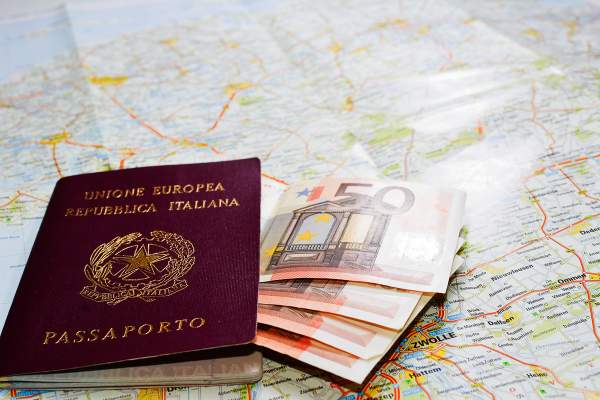The European Commission urges EU Member States to immediately repeal any existing investor citizenship scheme, it said on Monday. These schemes allow non-EU citizens to acquire European passports by investment, for instance in real estate, or by donation.
“We consider that the sale of citizenship through ‘golden passports' is illegal under EU law and poses serious risks to our security. It opens the door to corruption, money laundering and tax avoidance,” Commissioner for Justice and Consumers, Didier Reynders, said.
Members of the European Parliament also argued that such schemes pose a threat to European security and democracy as they can be used “as a backdoor” to the EU for “dirty money”.
Russian aggression
The ongoing Russian aggression against Ukraine is once again highlighting the risks of these schemes. Russian and Belarusian nationals, who are subjected to sanctions and potentially support the war in Ukraine, have had the possibility to acquire EU citizenship and the associated privileges.
The Commission therefore recommends that Member States assess whether "golden passports" that have been granted to Russian and Belarusian nationals in connection to the war in Ukraine should be withdrawn.
“Golden residence permits issued to Russians and Belarusians under EU sanctions should be revoked. Now more than ever, in the face of war, we must do everything to ensure that Russians and Belarusians under sanctions and those supporting Putin's war of aggression cannot buy their way into the EU,” Commissioner for Home Affairs, Ylva Johansson, said.
EU-wide benefits
The selling of citizenships in one EU country directly affects all the other Member States. Every person holding the nationality of any EU member state is thereby an EU citizen and free to move within the Schengen area, as well as access the EU internal market, vote and be elected in European and local elections.
“The right to travel freely within the Schengen area is among our greatest assets,” Johansson, said. “We need strong checks to make sure this right is not abused.”
It is not the first time the EU has voiced concerns about investor citizenship schemes. The European Parliament has repeatedly urged countries to stop selling golden passports and visas, to fight money laundering and corruption. This lead to legal action against Malta and Cyprus in 2020.
According to the EU Parliament, twelve EU countries operate residence by investment schemes. Among those countries are Portugal, Spain, Greece, Bulgaria, Malta, Ireland and Germany. The minimum investment levels range from €60,000 to €1,250,000.
Related News
- European Parliament calls for ban on ‘golden passports’
- Wallonia freezes €259 million in exports to Russia
- Passports for sale in EU corruption risk
Most countries have other basic requirements that need to be met in order to qualify for citizenship, such as a certain period of residency or basic language skills.
In Portugal, for example, one needs at least 5 years of residency and an A2 level proficiency in Portuguese. Germany does not have a golden visa programme, but you can obtain German citizenship by investment if you start a business that fulfils an economic interest or need and have lived in the country for 6 to 8 years.
Cash = citizenship
There is, however, a fast track to becoming a European citizen and its name is Malta. The smallest EU Member State sells passports in exchange for a contribution or ‘donation’ to the National Development and Social Fund.
For around €1.2 million in donations to the Maltese government and investments in the country, anyone can become a European citizen.
That appeals to the rich elite from countries like Saudi Arabia, China, and Russia. Russian citizens account for around a quarter of all of those who have obtained a golden passport in Malta.
Over the last decade, an estimated 4,000 Russians are thought to have obtained a European passport through golden passport schemes.
Yet Malta's Prime Minister Robert Abela defended the scheme, arguing that it has raised hundreds of millions of euros and enabled Malta to support businesses during the COVID-19 pandemic.

